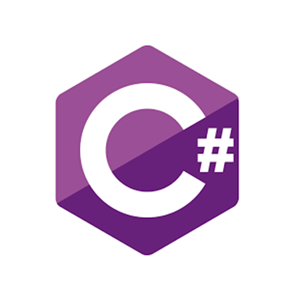C#.Net find output programs
- C#.Net find output programs (Data Types) | set 1
- C#.Net find output programs (Data Types) | set 2
- C#.Net find output programs (Data Types) | set 3
- C#.Net find output programs (Operators) | set 1
- C#.Net find output programs (Operators) | set 2
- C#.Net find output programs (Operators) | set 3
- C#.Net find output programs (const Keyword) | set 1
- C#.Net find output programs (this Keyword) | set 1
- C#.Net find output programs (readonly Keyword) | set 1
- C#.Net find output programs (static Keyword) | set 1
- C#.Net find output programs (static Keyword) | set 2
- C#.Net find output programs (if else) | set 1
- C#.Net find output programs (if else) | set 2
- C#.Net find output programs (if else) | set 3
- C#.Net find output programs (switch statement) | set 1
- C#.Net find output programs (switch statement) | set 2
- C#.Net find output programs (switch statement) | set 3
- C#.Net find output programs (goto) | set 1
- C#.Net find output programs (Loops) | set 1
- C#.Net find output programs (Loops) | set 2
- C#.Net find output programs (Loops) | set 3
- C#.Net find output programs (Arrays) | set 1
- C#.Net find output programs (Arrays) | set 2
- C#.Net find output programs (Arrays) | set 3
- C#.Net find output programs (default Arguments) | set 1
- C#.Net find output programs (default Arguments) | set 2
- C#.Net find output programs (Parameter Passing) | set 1
- C#.Net find output programs (Enumeration) | set 1
- C#.Net find output programs (Enumeration) | set 2
- C#.Net find output programs (Boxing & Unboxing) | set 1
- C#.Net find output programs (Structure) | set 1
- C#.Net find output programs (Structure) | set 2
- C#.Net find output programs (Structure) | set 3
- C#.Net find output programs (Classes & Objects) | set 1
- C#.Net find output programs (Classes & Objects) | set 2
- C#.Net find output programs (Classes & Objects) | set 3
- C#.Net find output programs (Constructors & Destructors) | set 1
- C#.Net find output programs (Constructors & Destructors) | set 2
- C#.Net find output programs (Constructors & Destructors) | set 3
- C#.Net find output programs (Inheritance) | set 1
- C#.Net find output programs (Inheritance) | set 2
- C#.Net find output programs (Inheritance) | set 3
- C#.Net find output programs (Interface) | set 1
- C#.Net find output programs (Interface) | set 2
- C#.Net find output programs (Method Overloading) | set 1
- C#.Net find output programs (Method Overloading) | set 2
- C#.Net find output programs (Method Overriding) | set 1
- C#.Net find output programs (Method Overriding) | set 2
- C#.Net find output programs (Method Overriding) | set 3
- C#.Net find output programs (Operator Overloading) | set 1
- C#.Net find output programs (Operator Overloading) | set 2
- C#.Net find output programs (Operator Overloading) | set 3
- C#.Net find output programs (Namespace) | set 1
- C#.Net find output programs (Namespace) | set 2
- C#.Net find output programs (Exception Handling) | set 1
- C#.Net find output programs (Exception Handling) | set 2
- C#.Net find output programs (Exception Handling) | set 3




 c# programming
c# programming
Answer 1:
Output:
Explanation:
In the above program, we created a variable i initialized with 0.
while (i < typeof(int).ToString().Length)The typeof(int) operator will return "System.Int32", then we converted returned output into the string and get length using "Length" property that will be 12. Then the condition will be like this:
while(i<12)That's why "Hello" will print 12 times on the console screen.
Answer 2:
Output:
Explanation:
The above program will generate a syntax error. Because we cannot get system type using typeof() operator in C#.
Answer 3:
Output:
Explanation:
The above program will print "Hello" infinite times because the byte variable can store 255 as a maximum value. But here we checked condition i<256, it means the loop will execute until variable i become 256, but after 255, the next number will not 256, it will be 0, that's why loop will never terminate and print "Hello" infinite times.
Answer 4:
Output:
Explanation:
The above program will print "Hello" 4 times on the console screen. Here, we created a variable LOOP initialized with 0.
while (false==false)In the above-given loop condition, we checked false==false then the condition will always true, but we used a break statement to terminate the loop. We increased the value of the variable LOOP using pre-increment operator when the value of the variable LOOP reaches to 5, then the loop will be terminated.
Answer 5:
Output:
Explanation:
The above program will generate syntax error because we can use only Boolean values that are true or false in the loop condition in C#.
need an explanation for this answer? contact us directly to get an explanation for this answer